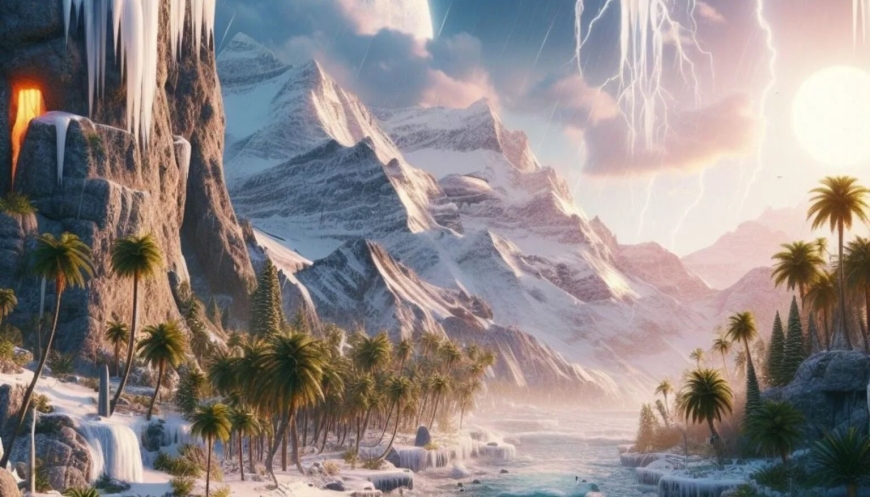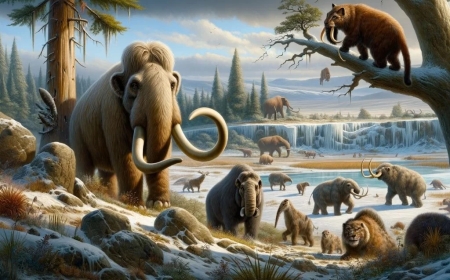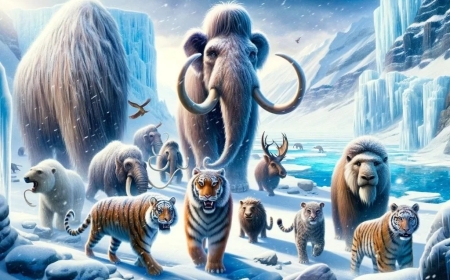What Would Happen If There Was Another Ice Age?

A second Ice Age would be catastrophic for humanity, altering climate patterns and leading to catastrophic flooding that would reclaim parts of our world.
As North America, Europe, and Asia become covered with snow, the population would likely be forced to relocate in response to climate change. Many animals such as mammoths, mastodons, and saber-toothed cats could become extinct.
1. The Earth would be covered in ice.
National Geographic reports that much of Earth would likely be covered in snow and ice due to how ice reflects sunlight into space, helping cool our planet down.
Ice would also contain nutrients, which would then be transferred into the oceans and cause an enormous explosion of life known as the Cambrian Explosion.
As the ice formed, it would render large areas of North America, Europe, and northern Asia uninhabitable, forcing many people out. Furthermore, its formation could create problems for infrastructure as extreme cold temperatures would place an enormous strain on buildings and roads; leading to power outages or disruptions of transportation services as well as making growing crops impossible and feeding humanity impossible.
2. The Earth’s temperature would drop.
The Earth has long experienced periodic cycles of glacial activity and warmer interglacial periods. An ice age would bring world temperatures significantly down while many regions would experience snowfall and glaciation.
Human civilization would face devastating repercussions from such an event. Areas where hundreds of millions live could become inhabitable; food shortages would become widespread; infrastructure such as roads and bridges would become compromised; snow would destroy infrastructure such as bridges.
Ice ages are caused by slow cyclical variations in Earth’s temperature, caused by changes to the amount and direction of sunlight received by our planet, as dictated by Earth’s orbit around the sun, its tilted axis tilt, and continent movement across its surface.
3. The Earth’s oceans would shrink.
An actual ice age would see the ocean’s ability to absorb and retain heat diminish, shrinking its expanse across Earth. This would cause currents that move heat around to slow down, leading to many potential issues for global climate.
Example: the North Atlantic Current that helps moderate the climate between Europe and America would cease functioning, leading to extreme cold temperatures and severe winter storms that damage buildings while disrupting power and transportation networks.
People living near water may also find themselves living far from it as sea levels decline significantly, leading to massive displacement and resource conflicts. Furthermore, cold temperatures could damage many infrastructure systems as well as make food production harder than before.
4. The Earth’s climate would change.
Scientists predict that Earth could soon be entering another ice age. Climate has changed so drastically from what it was during the mid-Pliocene Epoch three million years ago that conditions for an ice age are beginning to arise; yet human carbon emissions may change these orbital cycles and put off its arrival by millennia or two.
An ice age would have devastating repercussions for humanity. Crop growth would become much harder, leading to food shortages; buildings would be damaged from freezing temperatures; infrastructure would collapse; population numbers would decrease drastically and ultimately cause this disastrous event to become history.
5. The Earth’s ecosystems would change.
If another Ice Age were to start today, large areas that are home to hundreds of millions of people would become uninhabitable due to being covered in thick ice sheets and inhospitable climates. Ocean ports would likely close, and anyone wanting to live near water would likely have to move far from its edge.
Although our greenhouse gas emissions may decrease, there’s no guarantee another ice age won’t eventually come along – and when it does happen it could strike very suddenly and cause considerable damage. So it is vital to have a plan ready in case an ice age arrives: this requires technological innovation, social and political organization as well as resilience and adaptability – but ultimately cooperation among groups of people and individuals.
What's Your Reaction?





































